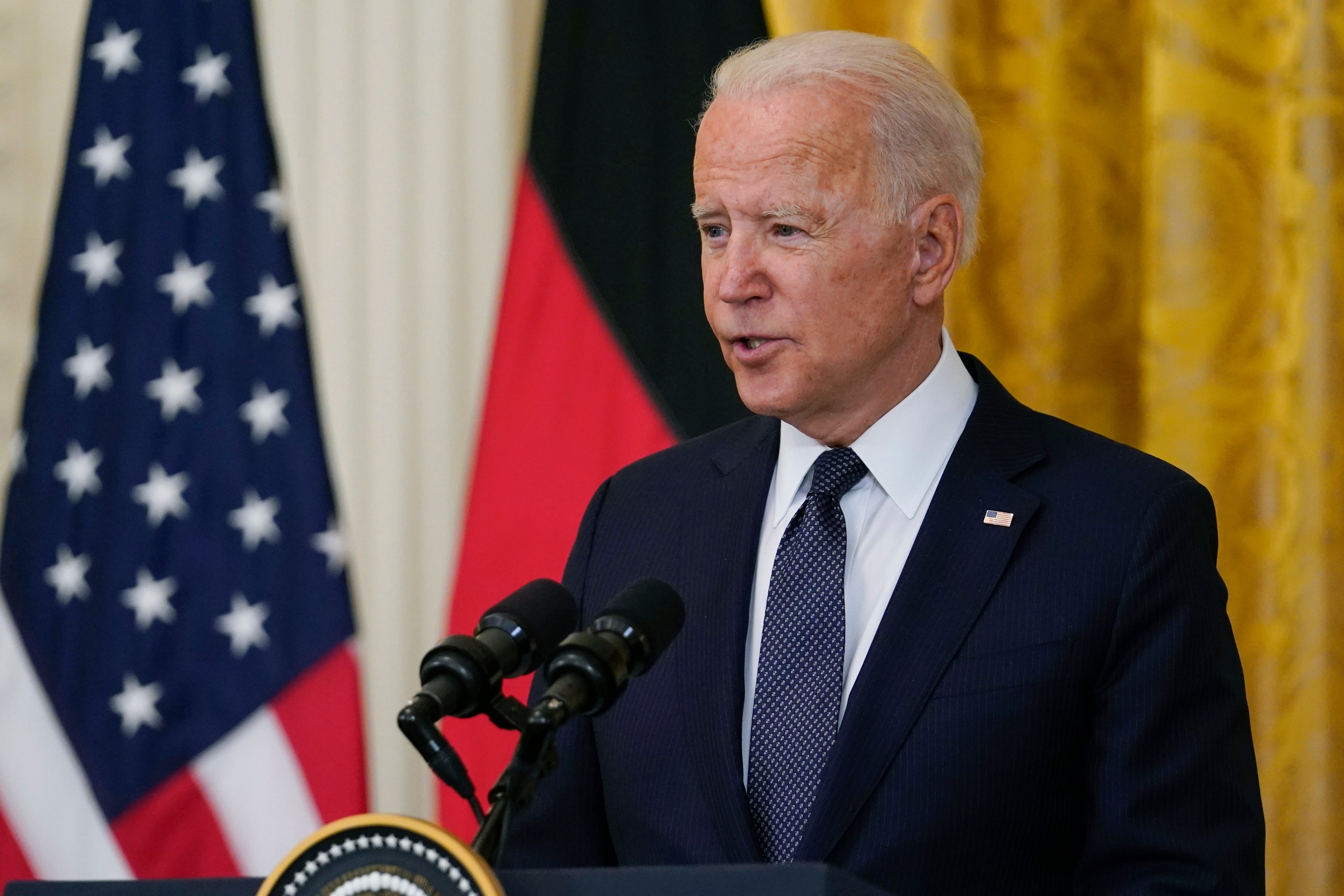Biden calls Cuba a failed state and communism a failed system
US embargo limits Cuba’s achievements, Miguel Díaz-Canel says

President Joe Biden has labelled Cuba a “failed state” and decried communism as a “universally failed system” amid protests in the Caribbean nation that remains under US sanctions.
Speaking at a news conference on Thursday, Mr Biden downplayed the prospect of reestablishing US to Cuba remittances – the process allowing American to wire money to Cuban relatives – as he said funds would “likely” be confiscated by the government.
“Cuba is unfortunately a failed state and repressing their citizens. There are a number of things that we would consider doing to help the people of Cuba, but it would require a different circumstance or a guarantee that they would not be taken advantage of by the government,” Mr Biden said.
“For example, the ability to send remittances back to Cuba. We would not do that now because the fact is it’s highly likely the regime would confiscate those remittances or big chunks of it,” he added.
The US president said the government is looking into restoring Cuba’s internet access, saying that it is considering whether it has “the technological ability” to do so. Cuban authorities shut down internet connections earlier this week as thousands took to the streets on Sunday against issues including food and medicine shortages and power cuts. Protesters have also rallied against the government’s response to the pandemic and state repression.
Cuban president Miguel Díaz-Canel said US sanctions were to blame for the nation’s economic conditions. He has described the embargo as a “cruel” and “genocidal” policy that limits what Cuba can achieve.
However, Mr Díaz-Canel also recognised the shortcomings of his own government. “We also have to make a critical analysis of our own problems so we can act, so we can overcome, and prevent them from repeating themselves, so we can transform situations,” he said during a speech on Wednesday.
Asked about his views on communism during the Thursday press conference, Mr Biden condemned it as a “universally failed system”, adding that he doesn’t see “socialism as a very useful substitute”.
The Caribbean country, which is the first Latin American nation to develop a successful Covid-19 vaccine, approved its three-dose Abdala jab for emergency use last week. Some 17 per cent of Cubans are fully vaccinated, according to figures from Our World in Data, as the country battles a rapidly rising tide of coronavirus infections and deaths.
Mr Biden said he was prepared to send Covid-19 vaccines to Cuba, but the nation has not joined the international vaccine coalition, Covax. “I’d be prepared to give significant amounts of vaccine if in fact I was assured an international organisation would administer those vaccines and would do it in a way that average citizens would have access to those vaccines,” he said.
Oxfam has called for the US to end its embargo, underlining that Cuba is the only nation in the world blocked from accessing the means needed to address the pandemic.
“The US blockade was wrong before the pandemic, and it’s even worse during the pandemic,” said Elena Gentili, Oxfam representative in Cuba. “It’s an unjust policy that has only achieved human suffering, separated families and exacerbated inequalities over the last sixty years, with particular negative impacts for Cuban women.”
During his time in office, Donald Trump toughened up sanctions against Cuba that had been liberalised by his predecessor Barack Obama, including imposing the strictest economic measures in decades and reinstating travel bans.
For 29 consecutive years, the UN has voted for in favour of a resolution demanding the end of the US economic blockade on Cuba, with just the United States and Israel voting against in 2021.
Join our commenting forum
Join thought-provoking conversations, follow other Independent readers and see their replies
Comments
Bookmark popover
Removed from bookmarks